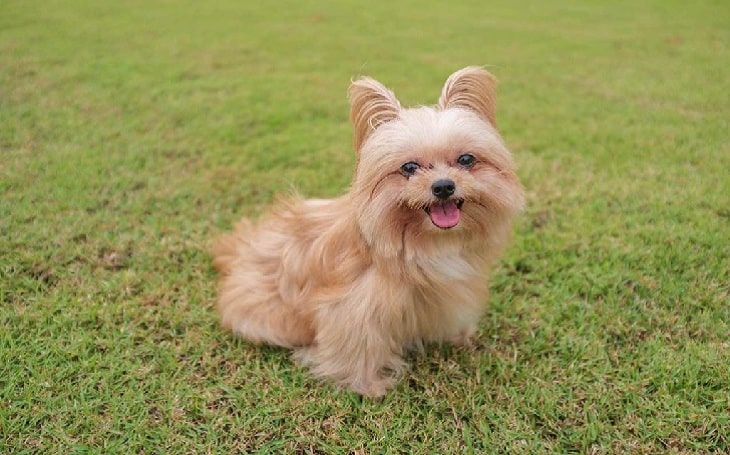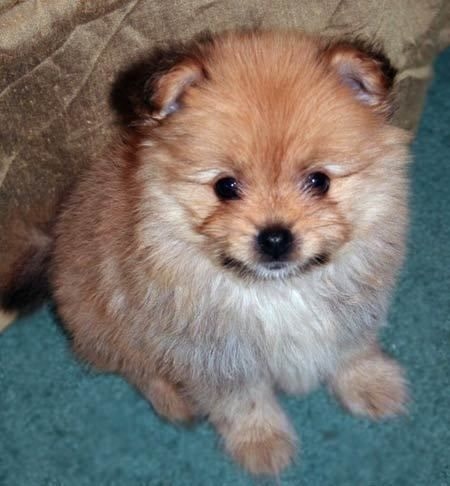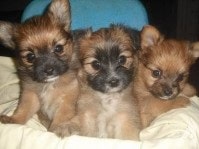Yoranian Dog Breed Information
| Country of Origin | United States |
| Nicknames and Other Names | Yorkshire Terrier-Pomeranian Mix Yorkie Pomeranian Mix Yorky Pom, Porkie Yoranian Terrier |
| Scientific Name | Canis Lupus Familiaris |
| Breed Type | Toy |
| Group | Crossbreed |
| Bred For | Family Companion |
| Size | Small-Sized |
| Recognized By | ACHC, DDKC, DBR, DRA |
| Life Span | 11-15 Years |
| Ideal Weight | 3-7 Pounds |
| Ideal Height | 6-12 Inches |
| Fur Type | Thick, Shiny, Double Coat, Wirehaired |
| Common Colors | Black, Golden, Light Brown, White, Brown, Cream |
| Markings | None |
| Availability | Moderately Available |
| Achievements | None |
| Suitable for Apartments | Yes |
| Used in World War | No |
| Most Similar To | Yorkshire Terrier Pomeranian |
The Yoranian dog is also known as Porkie, Yoranian or Yorkipom. It is a small-sized dog bred by crossing Yorkshire and Pomeranian. It is a lovable little dog that does great as a family companion. They are best suited in an apartment with only little activity requirements. It is beautiful and adorable with whom everyone falls in love at first sight.
The Yoranian can have a mix appearance of both its parents and can be more similar to one than another. The coat is a bit wary double coat with either long or medium-sized hair. The ears are small, upright giving it an alert expression. The tail is small and tends to go upwards on its back.
Origin and History
The Yoranian’s exact origin is unknown but it is one of the newest dog breeds. It is not a purebred dog but was bred by crossing the Pomeranian and the Yorkshire terrier. It is not known who created this designer dog but we can look at the history of its parents.
The Pomeranian is originated in Pomerania. It was very popular among royal families and the nobilities. The American Kennel Club recognized Pomeranian in 1888.
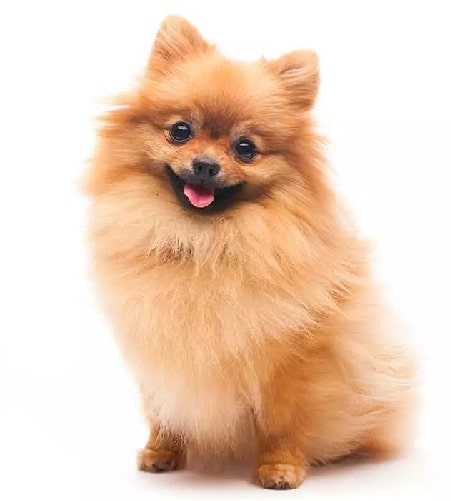
Image Source: Bow Wow Meow
The Yorkshire Terrier was developed in the mid-1800s in the county of the Yorkshire and Lancashire. It was used as a hunting dog that controlled vermin and rats in the clothing mills. The American Kennel Club recognized Yorkshire Terrier in 1885.
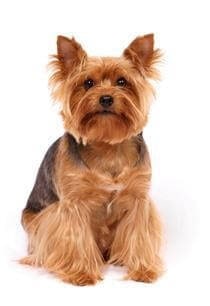
Image Source: Pedigree
Is Yoranian Child-Friendly?
The Yoranian can make an excellent companion with children. They are friendly and loving that likes to be around kids playing. However, they are small and toddlers and small kids can sometimes play rough. So they are best suited at the house with older children who know to behave around dogs. However, if Yoranian is to be kept at the house with small children, close supervision is needed.
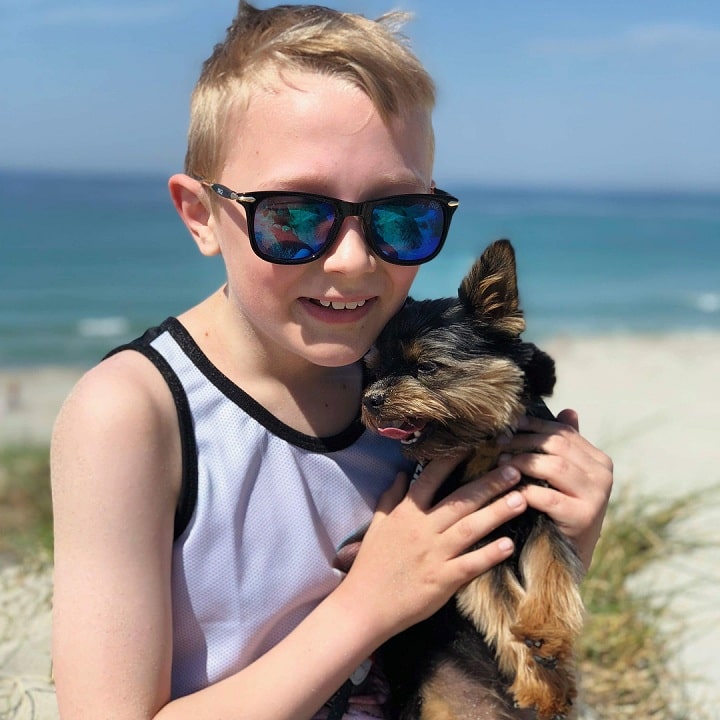
Image Source: Instagram-@johnny74_trev
Temperament, Behavior, and Personality
Temperament: The temperament of the Yoranian is gentle, loving with family and suspicious around strangers. It is a happy dog that loves to be around its family most of the time either playing or sleeping by their side. They do well with as a companion to both single and a couple.
Behavior: The Yoranian needs people and does not want to leave their side. So, if it is left alone for a long period of time without any human contact it can face separation anxiety. They may also show their destructive behavior by chewing on stuff and barking excessively.
Personality: The personality of the Yoranian is big despite its small size. They are loving and protective of their family. If they see any suspicious activity in the surrounding, they tend to bark warning their owner. Therefore, they can be taken as a great watchdog.
Trainability
Training Yoranian is not a tough task to do if started from an early age. They are a smart and clever little dog that can soak up things from an early age. However, firm leadership should be developed at the beginning so that they are obedient and devoted to you.
Use positive methods of training to motivate them. Reward them with treats and lots of vocal praises as they complete a task.
Facts
- The exact origin of the Yoranian is unknown but some believed it was bred in the USA.
- The coat can be either silky and long or thick and fluffy undercoat with harsh outer.
Health Issues
| General Health | Healthy |
| Common Health Issues | Hip Dysplasia, Cataracts, Progressive Retinal Atrophy, Dental Problem |
| Hypoallergenic | No |
| Vaccination Required | Rabies, Kennel Cough, Leptospirosis, Canine Coronavirus, Canine Parvovirus, Canine Parainfluenza, Canine Distemper, |
| Shedding | Moderate Shedder |
| Drooling | Low Drooler |
| Grooming | Easy and Minimal Grooming Required |
| Weight Gain Potential | Low |
| Separation Anxiety | High Chance |
| Allergies | None |
| Diets and Supplements | Protein: 22% Fat: 8% Fish Oil Digestive Enzymes Glucosamine |
The Yoranian have an average life expectancy of 11-15 years. It can inherit a few diseases from its parents.
- Dental Problem: The Yoranian can have a dental problem where sticky plaque buildup that forms into tartar. If it is not removed, it can cause inflammation and pain in the gum. To avoid this problem, regular cleaning of teeth and brushing is necessary. A routine checkup in a local bet is also recommended.
- Hip Dysplasia: It is an inherent health condition that is caused due to underdeveloped of the hip joints. It causes pain on the back of your dog, making it difficult to move from one place to another. Therefore, checking the health problem of your dog with the breeder before buying is necessary.
Colors
The Yoranian comes in the combination of the following colors:
- Tan
- Blue
- Black
- White
- Red
- Blonde
Puppies

Image Source: 101 Dog Breeds 
Image Source: Antrim – AmericanListed.com
Height and Size: The average height of the Yoranian is between 6-12 inches and the average weight is between 3-7 pounds.
Cost: The average cost of Yoranian Puppy is between $600-$800 USD.
Similar Dog breeds to Yoranian
- Pomeranian
- Yorkshire Terrier
- Maltese
- Havanese
Visit Doglime for more information about dog breeds history, training, puppies, and mix.
Tags
